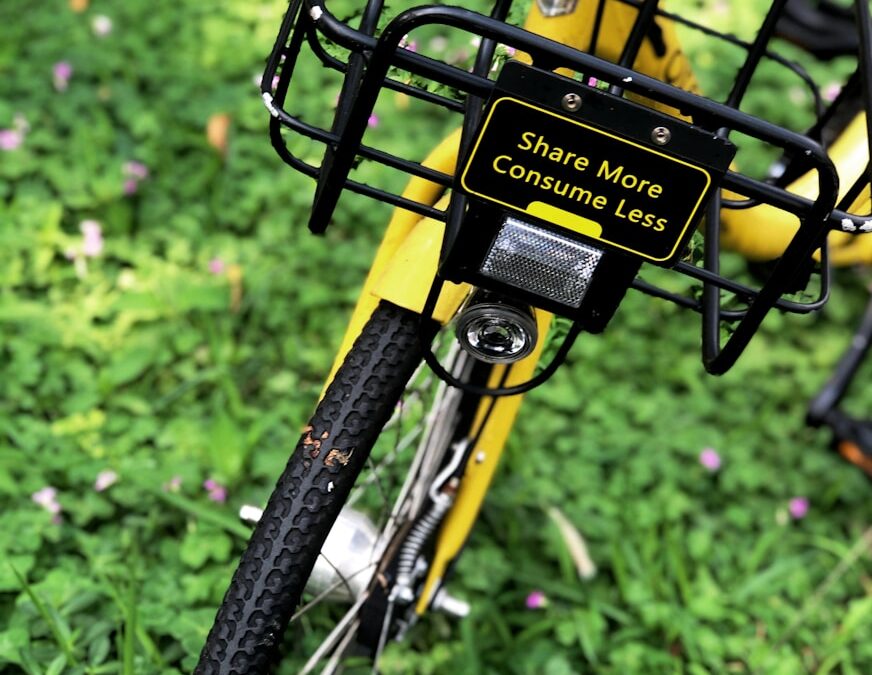Challenges and Solutions for Safety and Security in Bike-sharing and E-scooter Programs
Safety and security in bike-sharing and e-scooter programs have become paramount as urban mobility evolves in cities like Riyadh and Dubai. The rapid adoption of bike-sharing and e-scooter programs in Riyadh and Dubai has highlighted several challenges related to safety and security. Firstly, the lack of dedicated lanes and infrastructure poses significant risks. Riders often share roads with motor vehicles, increasing the likelihood of accidents. Secondly, the proper maintenance of bikes and e-scooters is crucial to prevent malfunctions that can lead to accidents. Many programs struggle to maintain their fleets adequately due to rapid expansion and high usage rates. Lastly, there is the challenge of theft and vandalism, which can deter users and lead to increased operational costs.
Another challenge is the effective communication of safety protocols to users. Many riders may be unfamiliar with the rules of the road or the specific guidelines for using shared bikes and e-scooters. This lack of knowledge can lead to improper usage, endangering both the riders and pedestrians. Furthermore, urban planners in Riyadh and Dubai must consider the unique environmental factors, such as extreme heat, which can affect the usability and safety of these programs.
Additionally, the integration of these programs into the existing urban landscape requires careful planning. Without proper management, the sudden influx of bikes and e-scooters can lead to cluttered sidewalks and public spaces, creating hazards and inconveniences for pedestrians. This necessitates a comprehensive approach to change management, ensuring that the introduction and expansion of bike-sharing and e-scooter programs are conducted smoothly and sustainably.
Solutions to Enhance Safety and Security
Addressing the safety and security challenges of bike-sharing and e-scooter programs requires a multifaceted approach. One effective solution is the implementation of advanced technological systems. For instance, leveraging Artificial Intelligence (AI) can significantly enhance fleet management. AI can predict maintenance needs, ensuring that bikes and e-scooters are always in optimal condition. Additionally, AI-powered surveillance systems can help prevent theft and vandalism by monitoring and identifying suspicious activities in real-time.
The use of Blockchain technology can also enhance security in bike-sharing and e-scooter programs. Blockchain provides a transparent and tamper-proof record of transactions, which can be used to track the usage and movement of each vehicle. This not only helps in recovering stolen bikes and e-scooters but also deters potential thieves due to the increased risk of detection. Moreover, integrating these technologies into the programs can improve user trust, encouraging more people to adopt these sustainable modes of transportation.
Another critical solution is the establishment of dedicated infrastructure for bike-sharing and e-scooter programs. Cities like Riyadh and Dubai can benefit from creating dedicated lanes and parking zones to ensure safe and efficient usage. Additionally, conducting regular safety audits and user training sessions can significantly reduce accidents and misuse. By providing clear and accessible information on safety protocols, cities can enhance effective communication with users, fostering a culture of safety and responsibility.
Executive Coaching and Change Management
Executive coaching services play a pivotal role in the successful implementation of bike-sharing and e-scooter programs. Leaders in Saudi Arabia and the UAE can benefit from coaching that focuses on strategic planning, risk management, and stakeholder engagement. By developing strong leadership and management skills, executives can navigate the complexities of introducing these programs and ensure their long-term success.
Furthermore, effective change management strategies are essential to integrate these programs into the urban landscape seamlessly. Change management consultants can help cities design and execute comprehensive plans that address the logistical, cultural, and regulatory aspects of bike-sharing and e-scooter programs. This holistic approach ensures that the programs are not only successful but also sustainable and well-received by the public.
Ultimately, the success of bike-sharing and e-scooter programs in Riyadh and Dubai hinges on a combination of technological innovation, strategic planning, and effective communication. By addressing the challenges and implementing robust solutions, these cities can pave the way for a safer, more efficient, and sustainable urban mobility future.
#SafetySecurity #BikeSharing #EScooter #UrbanMobility #Riyadh #Dubai #SaudiArabia #UAE #AI #Blockchain #ChangeManagement #ExecutiveCoaching #LeadershipSkills #EffectiveCommunication #ProjectManagement

